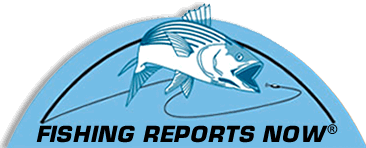Could Help Summer Flounder Bag Limits
From the Atlantic States Marine Fisheries Commission:
FOR IMMEDIATE RELEASE, MARCH 15, 2013
States Schedule Hearings on Summer Flounder Draft Addendum XXIV
Arlington, VA – Massachusetts, Rhode Island, New Jersey, and Virginia have scheduled their hearings to gather public comment on Draft Addendum XXIV to the Summer Flounder Fishery Management Plan. The dates, times, and locations of the scheduled meetings follow.
Massachusetts Division of Marine Fisheries
April 11, 2013; 5:30 PM
Jonathan Bourne Public Library
19 Sandwich Road
Bourne, Massachusetts
Contact: David Pierce at 617.626.1532
Rhode Island Division of Fish & Wildlife
April 8, 201; 6 PM
University of Rhode Island Graduate School of Oceanography, Corless Auditorium
South Ferry Road
Narragansett, Rhode Island
Contact: Jason McNamee at 401.423.1943
New Jersey Division of Fish and Wildlife
April 4, 2013; 7 PM
Ocean County Administration Building
101 Hooper Avenue
Public Hearing Room #119
Toms River, New Jersey
Contact: Peter Himchak at 609.748.2020
Virginia Marine Resources Commission
March 26, 2013; 6 PM
2600 Washington Avenue
Fourth Floor
Newport News, Virginia
Contact: Rob O’Reilly at 757.247.2248
The Draft Addendum proposes to stabilize 2013 recreational fishing rules for summer flounder close to those that existed in 2012 partly to minimize the reductions facing two states (e.g., New York and New Jersey) and partly to allow for the more equitable distribution of fishing opportunities in the 2013 season. The proposed approach is intended to allow states to capitalize on harvest opportunities that are foregone by states that choose not to fully utilize their 2013 harvest target.
Specifically, the Draft Addendum proposes a mechanism to allow states access to the summer flounder recreational harvest limit (RHL) that is projected to not be harvested in 2013. For example, following the implementation of each state’s measures, recreational harvest will be projected. This projected harvest will be compared to the total RHL (2.5 million fish) to determine the amount of fish available to the states. States may then make an appeal to the Board requesting access to the additional RHL. The request would include why the state has not been able to address its fisheries needs through the current management system, how the additional fish would impact the state’s 2013 fishery, and the amount of fish a state is requesting. The Board would ultimately decide the distribution of the additional RHL. It is important to note the states that do not utilize their full liberalization are not giving up their state portion of the 2013 RHL. The Draft Addendum proposes modification of the summer flounder specification process for 2013 only. The Board has established a subcommittee to address long-term solutions for the 2014 summer flounder recreational fishery and beyond. In 2014, the Commission would revert to the specification process used in previous years unless altered through a subsequent addendum.
The Draft Addendum responds to an unintended consequence of using conservation equivalency (e.g., state-specific recreational management measures) to stay within the annually established coastwide RHL for summer flounder. Although the shift away from coastwide management to state conservation equivalency addressed the interests of some states, it created difficulties for other states as overages occurred. While conservation equivalency provided greater flexibility for individual states to set their limits from year to year, state targets were based upon the 1998 estimate of harvest from the Marine Recreational Fishery Statistics Survey. No mechanism, outside of the addendum process, was included to allow for the adjustment of the mechanism to set the harvest target or the management strategy if changes occurred in the fishery along the coast. This resulted in ever increasing size limits, reduced bag limits, and shorter seasons for most of the states while the stock was at a low level and recovering. However, the impact of these ever-restrictive measures seemed to affect New York the most, where the size limit reached 21 inches by 2009, which also saw a very short season including mid-season closure. In 2012, with a fully recovered stock, New York’s minimum size (19.5 inches) was at least one inch higher than any other state, one and a half inches higher than its Long Island Sound bordering state, Connecticut and two inches greater than its ocean / New York Harbor bordering state, New Jersey.
Fishermen and other interested groups are encouraged to provide input on the Draft Addendum either by attending state public hearings or providing written comment. Draft Addendum is available here.
Public comment will be accepted until 5:00 PM (EST) on April 12, 2013 and should be forwarded to Toni Kerns, ISFMP Director, at 1050 N. Highland St., Suite 200 A-N, Arlington, VA 22201; 703.842.0741 (FAX) or tkerns@asmfc.org (Subject line: Summer Flounder).
###
Tina Berger
Public Affairs Specialist
Atlantic States Marine Fisheries Commission
1050 N. Highland Street, Suite 200A-N
Arlington, VA 22201
703.842.0740
tberger@asmfc.org
www.asmfc.org





